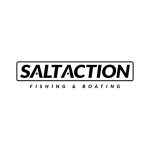Safety and operation of boats are very important. It is up to you as the captain of your vessel to ensure the safety of yourself and your party.
Proper Marine Communication
Off the coast, a cell phone's signal can become unreliable, and after a full day at sea, the battery might die. They are useful, but you shouldn't count on them in an emergency. The maritime emergency channel may be found on VHF channel 16 and it should only be utilized in critical situations.
At any time of the day or night, boaters can use marine-band radios to communicate with the Coast Guard.
Stay Sober
In every state, it is against the law to be behind the wheel of a boat while under the influence of alcohol or narcotics. In the event that you violate the BUI or BWI rules, you might face severe consequences such as lengthy jail sentences, hefty fines, and even the loss or suspension of your permission to operate a boat.
In 2016, drowning was the cause of death for eighty percent of all fatal boating accidents. About 83 percent of those individuals were not using any kind of flotation device. Even the most capable swimmers can suffer injuries, pass out, or become weary while they are in the water due to accidents.
The use of alcohol is the most common cause of fatalities that may be attributed to boating accidents.
Know Your Float Plan
You should give a comprehensive float plan to a friend or family member who will be remaining behind. The sooner it is possible to report a craft as overdue, the higher the likelihood that a favorable outcome will occur. In a time of crisis, it is imperative that accurate information be communicated promptly.
Your float plan should contain all of the specific details that search and rescue workers want in order to locate you.
Know The Marine Environment
Keep an eye out for the latest small craft and storm advisories. The National Weather Service frequently disseminates marine weather predictions on its radio and television programs.
If you have a VHF marine radio, you may listen to the forecasts by tuning in to channels 1 through 5, and you can also check the National Weather Service website at www.weather.gov.
Be Prepared
In addition to an emergency position-indicating radio beacon (EPIRB), boaters should also be equipped with signal flares, a whistle, a horn, or a signal mirror in order to provide first responders with information on the location of a water-related incident.


